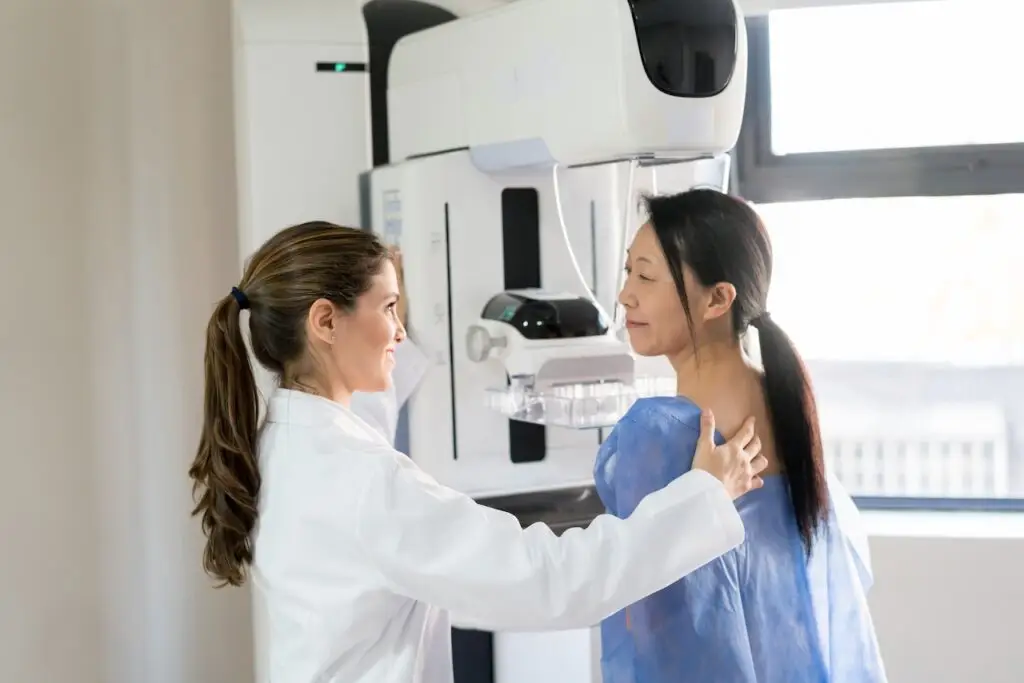I decided to undergo genetic testing both before and after my breast cancer diagnosis. I come from a family history of premenopausal breast cancer. Both my great grandmother and my mom received early breast cancer diagnoses. And so when I was in my early 30s, my OBGYN suggested that I get tested for the BRCA gene mutation, which I learned I don’t have. After I received my breast cancer diagnosis, which was soon after I turned 40, I was thankfully at a big NCI academic research center. There, my doctors said that BRCA testing wasn’t nearly enough. They wanted me to do genetic testing for the full panel of potential mutations, which at the time was 65.
I was blown away that there were that many other mutations to look for. My doctors told me that even if we didn’t find a direct mutation, we might find a VUS, or a variable of unknown significance. They thought we were very likely to find a full mutation or a VUS given my family history. But, the results came back with no matches, which was a surprise to my oncology team. They told me that it’s likely that I have a mutation for which science hasn’t yet defined a genetic marker.
In a sense, I was disappointed that I didn’t have any known mutations. And that’s because, without any mutations, I wasn’t a candidate for any of the targeted breast cancer treatments based off of specific genetic mutations from testing.
Even though I didn’t learn any specific information that influenced my treatment, I’m still glad I underwent genetic testing–twice. I would tell every breast cancer patient that they should consider their breast cancer diagnosis to be as unique as a snowflake. There aren’t two that are exactly the same.
Oncology research is now very focused on precision medicine, and it’s really important for patients to know the genetic makeup of both themselves and their tumor. There could possibly be targeted drugs that could be very helpful for treating their cancer, and if they’re unaware of their genetic or tumor makeup. They’ll miss out on that treatment benefit if they’re only pursuing the generic standard of care.
Through our partnership with Invitae, you can find out if your insurance covers genetic testing for breast cancer and pursue the testing right away.
Personalized support for real care decisions
Understand your diagnosis, explore clinical trials, and track symptoms--all in one place.
Get started
Compare treatments, prepare for appointments, and track side effects—all in the app
Built for your diagnosis, Outcomes4Me gives you the tools to make confident, informed decisions—right when you need them.
Continue in app






